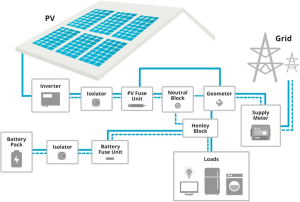Lithium Batteries in Electric Vehicles: Driving the Future

Introduction
The automotive industry is undergoing a profound transformation driven by the shift towards electric vehicles (EVs) as a sustainable alternative to traditional internal combustion engine (ICE) vehicles. Central to the success of EVs are lithium batteries, which power the vehicles’ electric drivetrains and enable zero-emission transportation. This article explores the role of lithium batteries in electric vehicles, examining their importance, advancements, and contributions to shaping the future of mobility.
The Rise of Electric Vehicles
Electric vehicles represent a paradigm shift in transportation, offering reduced emissions, lower operating costs, and enhanced energy efficiency compared to conventional gasoline-powered cars. As concerns about climate change, air pollution, and fossil fuel dependence mount, governments, automakers, and consumers are increasingly embracing EVs as a sustainable and environmentally friendly mode of transportation.
Importance of Lithium Batteries in Electric Vehicles
Energy Storage
Lithium batteries serve as the primary energy storage system in electric vehicles, storing electrical energy generated from charging stations or regenerative braking and supplying power to the vehicle’s electric motor during acceleration and cruising. The high energy density of lithium batteries enables EVs to achieve longer driving ranges on a single charge, making them practical for everyday use and long-distance travel.
Performance and Efficiency
Lithium batteries offer superior performance and efficiency compared to traditional lead-acid or nickel-metal hydride batteries, providing higher power output, faster acceleration, and smoother operation. The lightweight and compact design of lithium batteries also contributes to improved vehicle handling, agility, and overall driving experience in EVs.
Range and Charging Infrastructure
The proliferation of lithium batteries has facilitated the development of EVs with extended driving ranges and rapid charging capabilities, addressing concerns about range anxiety and charging convenience. Advances in battery technology, including higher energy density, faster charging rates, and improved thermal management, have expanded the appeal and viability of EVs for a broader range of consumers.
Advancements in Lithium Battery Technology
Energy Density
Ongoing research and development efforts are focused on increasing the energy density of lithium batteries, enabling EVs to achieve even greater driving ranges on a single charge. Innovations in electrode materials, electrolytes, and battery cell design hold the potential to significantly improve energy storage capacity while reducing battery weight and volume.
Fast Charging
Advancements in lithium battery technology have led to improvements in fast charging capabilities, allowing EVs to recharge quickly at public charging stations or home charging units. High-power charging protocols and enhanced thermal management systems enable EV owners to replenish their battery packs in a matter of minutes, significantly reducing charging times and enhancing convenience.
Battery Longevity
Lithium battery longevity is a key consideration for EV manufacturers and consumers alike, with efforts focused on extending battery lifespan and reducing degradation over time. Enhanced cell chemistry, intelligent battery management systems (BMS), and predictive maintenance algorithms help optimize charging profiles, minimize stress on battery cells, and prolong overall battery life in EVs.
Challenges and Considerations
Cost
Despite significant cost reductions in recent years, lithium batteries remain one of the most expensive components of electric vehicles, contributing to higher upfront purchase prices compared to conventional ICE vehicles. Continued advancements in battery manufacturing, economies of scale, and government incentives are needed to further reduce the cost of lithium batteries and make EVs more affordable for consumers.
Supply Chain and Resource Dependence
The global supply chain for lithium batteries relies on finite reserves of lithium and other critical materials, raising concerns about resource availability, geopolitical risks, and environmental impact. Diversifying the sources of raw materials, investing in recycling and circular economy initiatives, and developing alternative battery chemistries are strategies to mitigate supply chain vulnerabilities and enhance sustainability in the EV industry.
Recycling and Environmental Impact
The widespread adoption of electric vehicles has led to increased focus on the recycling and environmental impact of lithium batteries. Establishing efficient recycling infrastructure, implementing closed-loop battery supply chains, and promoting eco-friendly battery manufacturing processes are essential for minimizing waste, conserving resources, and reducing the environmental footprint of lithium batteries in EVs.
Conclusion
Lithium batteries are driving the future of electric vehicles, powering a sustainable transition towards zero-emission transportation and reducing reliance on fossil fuels. As advancements in battery technology continue to accelerate, lithium batteries will play an increasingly pivotal role in enhancing the performance, range, and affordability of electric vehicles. By addressing challenges related to cost, supply chain resilience, and environmental sustainability, the EV industry can leverage the capabilities of lithium batteries to accelerate the widespread adoption of electric vehicles and usher in a cleaner, greener, and more sustainable future for mobility.






